The foundation of any successful team is its capability to communicate with teammates regularly. Any organization that wants to succeed needs effective communication, whether working in corporates, with NGOs, or even on the sports pitch. It could determine the team’s progress and success. Let’s investigate how team-building activities can enhance group communication.
The Significance of Efficient Communication
Speaking is only one aspect of communication skills; other abilities include listening, identifying non-verbal cues, and expressing opinions to boost consensus and cooperation. Miscommunication or a lack of communication often causes ineffectiveness and even differences among team members. However, efficient communication is essential for developing trust among coworkers and increasing output.
What Makes a Team Effective
Team-building activities are designed to improve team bonding, enhance collaboration, and break communication barriers. These activities range from simple tasks to technical problem-solving challenges. The core aim of team-building exercises is to improve communication, collaboration, and bonding between teammates. This will eventually develop an atmosphere where employees can easily share thoughts, provide feedback, and cooperate to achieve common goals.
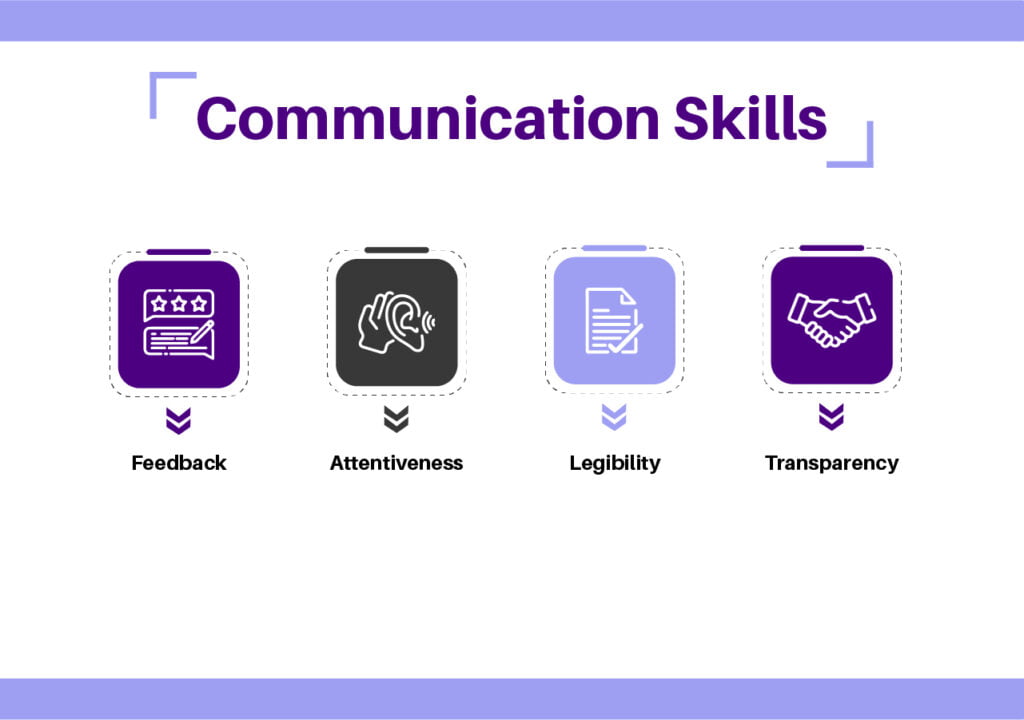
Team Building's Benefits for Communication Skills
Collaboration and Trust:
Participating in team-building exercises builds trust among employees. With mutual trust, individuals are more inclined to communicate honestly and openly.
Improved Vision for Solving Problems:
Group problem-solving is a standard component of team-building activities. It increases the team’s creativity, allowing them to focus on generating new ideas and devising workable solutions.
More precise Communication:
Through team building exercises, team members improve their communication skills more precisely. They understand the importance of clarity in communications and how to convey messages in a way that minimises misunderstandings.
Acknowledgement of Personal Strengths:
Team-building activities often highlight each team member’s benefits and disadvantages. People aware of these problems can better determine how to support their coworkers’ success and when to seek outside assistance.
Focusing on a single Goal:
Sharing industry experiences helps teams stay committed to a single objective. It eventually gives teams a sense of comfort in communication. This alignment of ideas makes working towards common goals and defining priorities simpler.
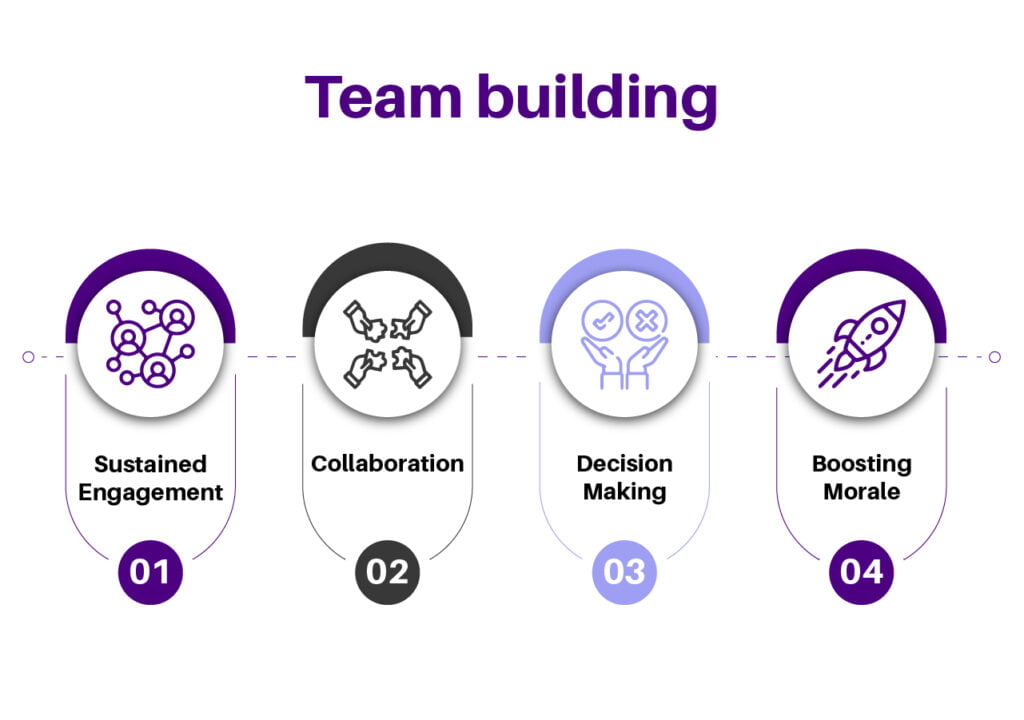
Advice for Effective Team Building
Choose Your Tasks With caution:
Select team-building exercises based on your team’s goals and characteristics.
Motivate the team:
Motivation is the cornerstone of every success. After team-building activities, collect feedback from team members about what they learned and how they communicate. Then, discuss future improvements and implementations.
Monitoring Techniques:
Incorporate techniques and team-building exercises into daily work routines to strengthen productive communication patterns. Figure out more creative strategies to build a healthy work environment.
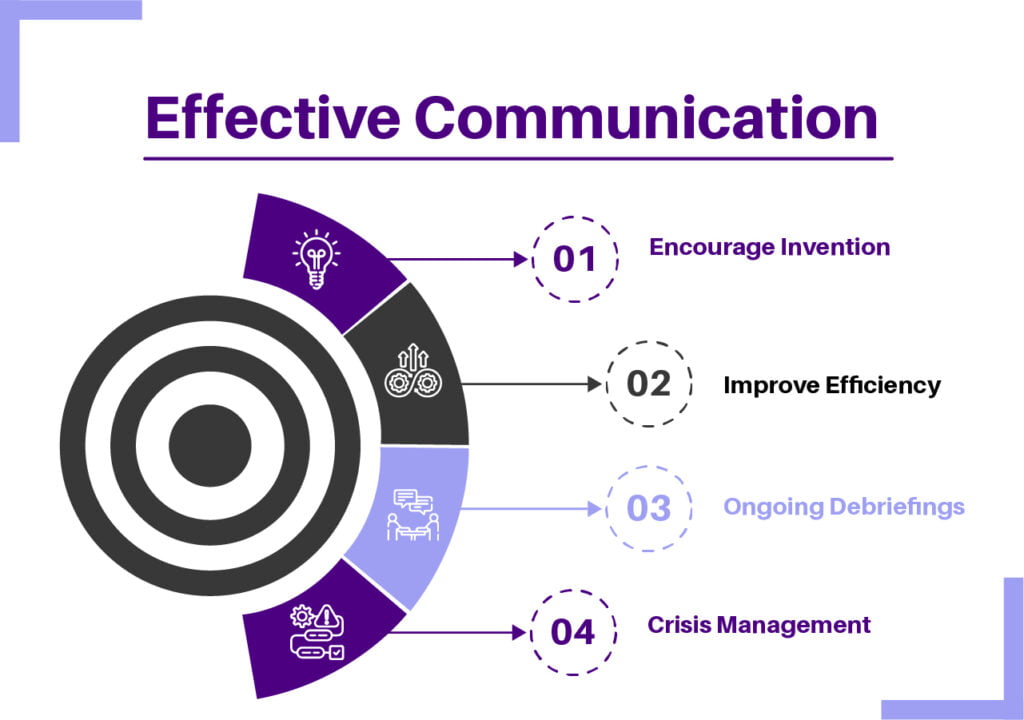
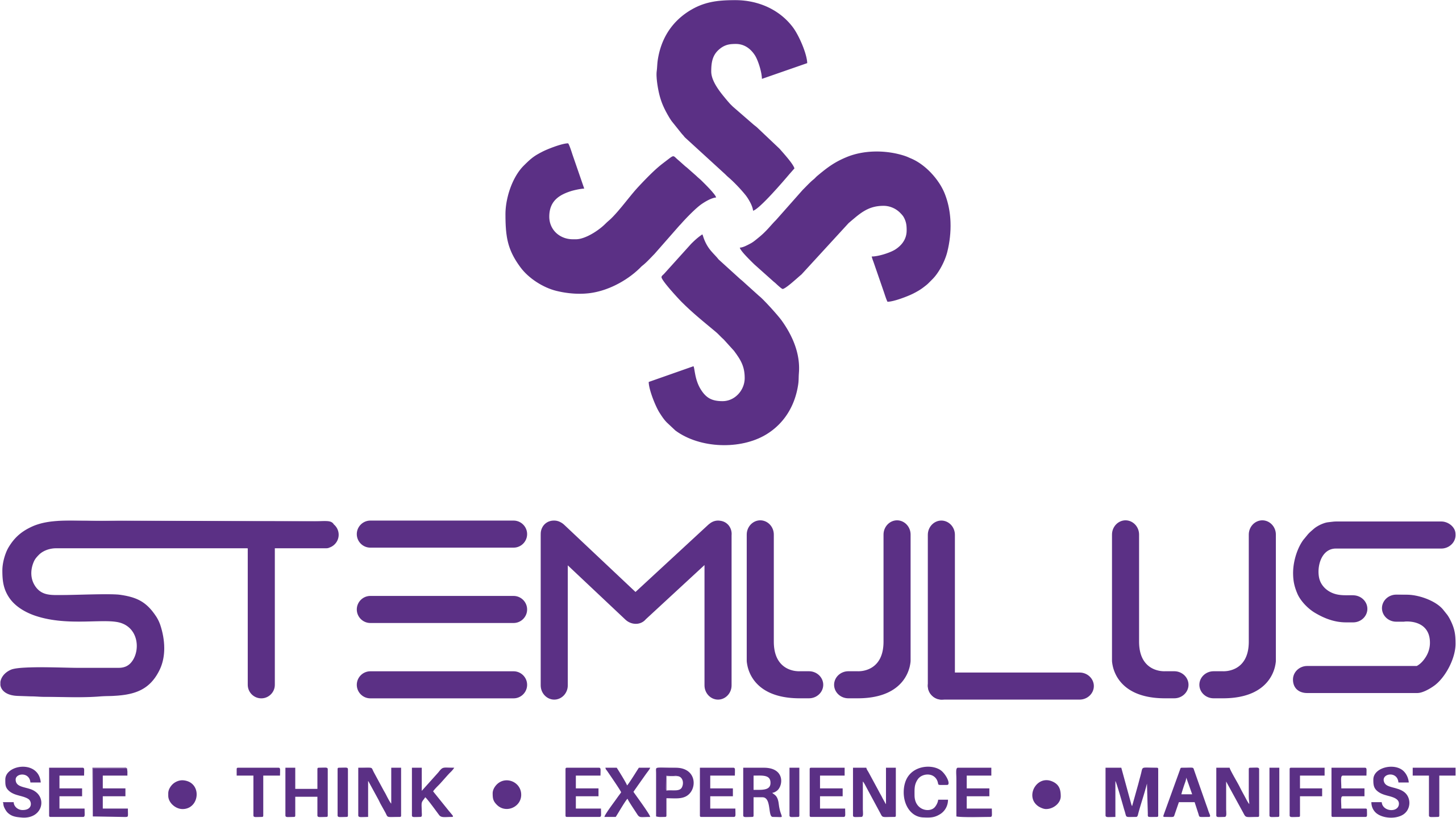
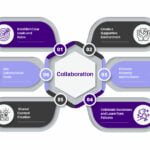


[…] No, it’s not. In the dynamic world of the modern team’s workplace, trust is the ladder of Team Building. Trust is not just an attribute; it forms the bedrock upon which successful teams excel. It builds […]
[…] from the participants gives rise to some qualitative information regarding the effectiveness of the team-building activities. Promote post-mortem analysis and discussions of the outcomes and the poor, and discuss what can be […]